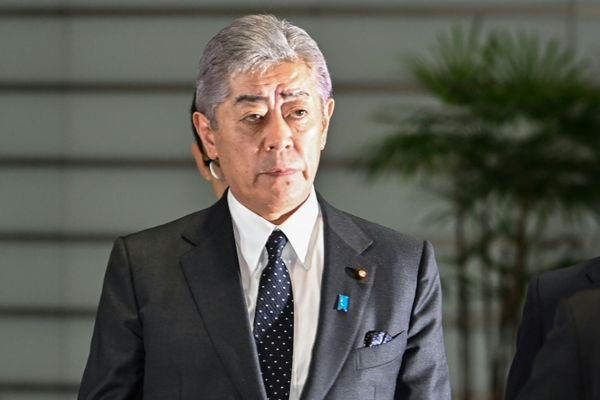
Just as we’ve become comfortable with the once-guilty pleasure of binge watching the seemingly endless television drama on offer, we’re about to be shaken by the dirty secret Hollywood insiders are whispering to each other: for audiences, this is as good as it gets. The golden age of television is done.
At the moment, it’s a very Hollywood story with much of the blame being pointed at the interruption of film and television production driven by last year’s overlapping strikes by actors and writers. But given our increasing integration into the US industry — from production to consumption — we can expect 2024 to be the year it affects Australia.
Already the whispers are getting too loud to ignore: last week, The Sopranos’ creator David Chase broke cover, telling UK’s paywalled The Times that the “blip” of quality, immersive television was over.
He was talking about the domination — critically and culturally — of the complex, character-led dramas with a strong social edge, kicked off by The Sopranos 25 years ago this month, and followed by shows such as Breaking Bad, Mad Men and The Wire.
In Australia, the public broadcasters tried to keep up (think those wonderful shows such as Redfern Now on the ABC or East West 101 on SBS), helped by targeted funding boosts for drama production. But just as television production was booming in the US, the Abbott and Morrison governments cut funding. ABC drama production fell by half between 2013-19.
Writers are starting to shape our understanding of the shift. Over the summer, the doyen of Hollywood’s popular cultural historians, Peter Biskind, released Pandora’s Box about “the greed, lust and lies” that broke modern Hollywood. (Biskind is best known for his 1998 book Easy Riders, Raging Bulls on the new Hollywood that emerged from the sex, drugs and rock’n’roll of the 1960s.)
The 2013 book that defined the modern television canon (per The New York Times, at least), Difficult Men, was relaunched, with a caution from author Brett Martin that this “golden age” raised “the knotty question of how the same men who provided, in many ways, the most astute critiques of toxic male power that mainstream culture had ever seen could nevertheless end up confirming and recapitulating precisely the same dynamics in their own workplaces”.
Peak prestige television was driven by technology and the economics of distribution. Must-watch drama was how emerging players bought our attention for the new platforms, fuelled, as Variety magazine said recently, “by the availability of cheap debt and optimistic projections about the potential of fledgling streaming platforms”.
We can see the moment when the technology driver flipped from cable to streaming just a decade ago in 2013 — the year Tony Soprano’s James Gandolfini died and Netflix leapt into prestige production with House of Cards. Now the economics of television are pushing the other way. Cable (never big in Australia) has slumped in the US and linear television is struggling. Two of the three big US networks are believed to be on the market, including Paramount Global (owner of Australia’s Ten Network and Paramount+).
Even the residue of the TV stations bought in the 1980s to build Rupert Murdoch’s dream of a fourth network (for which he surrendered his Australian citizenship) may be for sale, perhaps opening the door for the family to resurrect its 2022 plan of merging its Fox and News companies (and ducking public campaigns, like last year’s over the renewal of its flagship Philadelphia licence.)
But it’s the streaming market that’s choking the industry with a mix of deep-pocketed competition and audience saturation. When it comes to drama, the Australian commercial services (Nine-owned Stan and Delaware-based News Corp subsidiary Binge) compete with the free public broadcaster offering (ABC’s iView and SBS On Demand) and lag behind the global players such as Netflix, Amazon Prime and Disney.
Hollywood has decided the only way out is to cut costs. Although Bloomberg seemed to have got ahead of itself when it warned about 18 months ago: “The age of peak TV is ending. An age of austerity is beginning.” Now it’s commonplace.
In the wash-up of last year’s strikes, Variety warned that austerity would mean less money spent on prestige and quality with fewer “A-list” stars in productions, less work on location and trimmed spending on special effects. Paradoxically, the Australian industry may be a winner from the shift, thanks to a low dollar and government handouts to the Hollywood studios.
For those watching on, expect less of the big-budget prestige drama that’s shaped our cultural experiences of the past quarter-century. Expect, too, a consolidation of streaming services and a narrower offering. And get ready to tell your kids about the good old days of the golden age of television.







